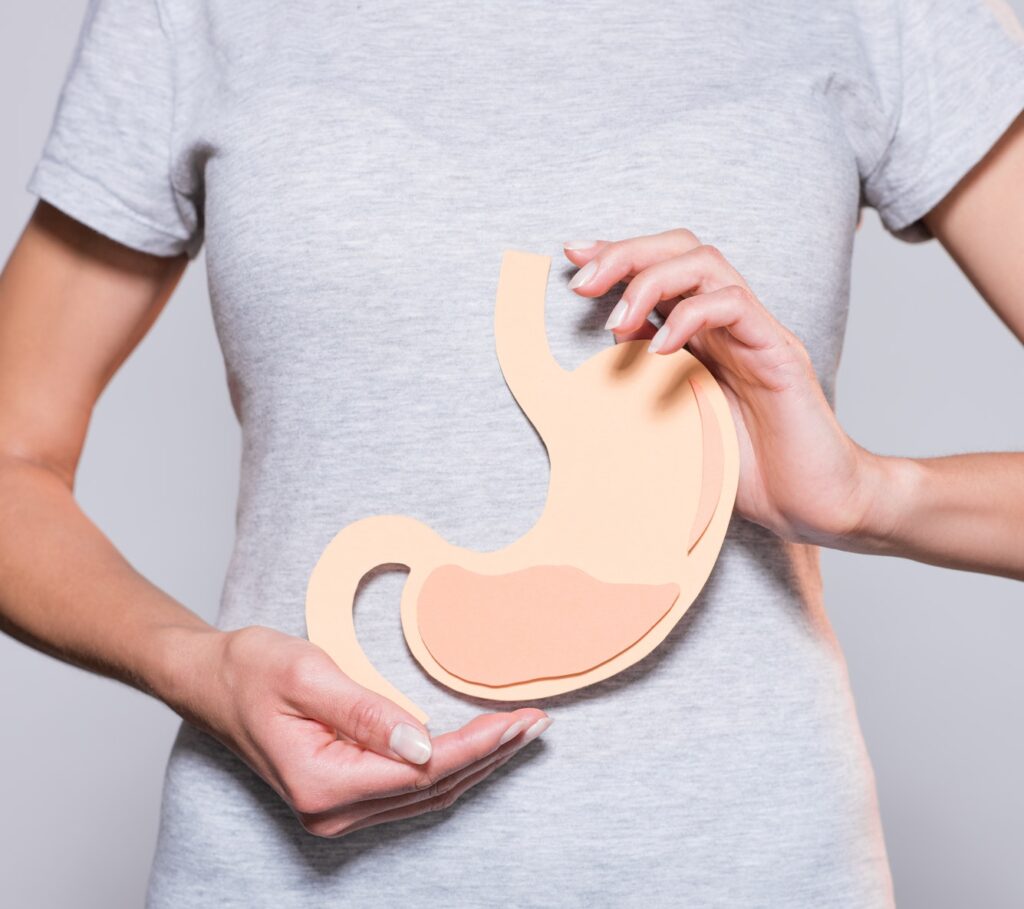Does digestion affect fertility? Does digestion affect hormonal balance? Does digestion affect systemic inflammation The answer to all of these questions is YES!
Digestion is one of the main detox pathways in the body that allows toxins and used hormones to be excreted through the stool. If you have a history of the typical American diet and/or antibiotics use there is a chance you may have impairment with this detox pathway due to dysbiosis. Dysbiosis is an imbalance of beneficial and pathogenic bacteria in the digestive tract. When the pathogenic bacteria are in excess they secrete high levels of beta-glucuronidase, which is a nasty enzyme that deconjugates the toxins and used hormones our liver has packed up to be shipped out through the bowel movement. This leaves toxins and used hormones ready to be reabsorbed into the bloodstream.
What effect does this have on the body? It may cause a hormonal imbalance through endocrine-disrupting chemicals re-entering the bloodstream. These toxins and chemicals can disrupt the hormonal communication system throughout the body, including the hormonal communication between the pituitary and ovaries. The used hormones that are unconjugated and reabsorbed due to beta-glucuronidase may cause estrogen dominance, which, in some cases may lead to PMS, endometriosis, fibroids, polyps, and estrogen receptive cancers. How to lower beta-glucuronidase? For starters, correct the dysbiosis to lower the levels of the pathogenic bacteria excreting beta-glucuronidase, while also improving levels of beneficial bacteria. This takes time, with dietary changes providing the best strategy for shifting the bacteria profile in the digestive tract to a healthy state. A 4-6 week low FODmap diet is recommended, followed by an ongoing shift to a predominately whole food and plant rich diet that is high in fiber and eliminates processed foods. Probiotics, and in some cases, antimicrobial herbs may also be recommended to help reduce dysbiosis. Calcium-D-Glucarate is recommended to help prevent beta-glucuronidase from deconjugating toxins and used hormones.
What about inflammation? One of the main sources of an upregulated immune system and systemic inflammation is intestinal permeability, or is it is known in layman’s terms, leaky gut. Intestinal permeability is when the single-celled lining of the small intestines has a weakened connection to the next cell. This connection between each cell of the lining of the small intestines is called the tight junction. When there is more space in the tight junction than normal this allows larger food particles to get into the bloodstream before they are fully broken down and absorbed as recognizable peptides. What also gets into the bloodstream are lipopolysaccharides or endotoxins, which are fragments of bacteria that enter the bloodstream through the weakened tight junction. This creates a significant immune and inflammatory response, as the immune system is targeting these large food particles and lipopolysaccharides as foreign invaders. This response is called endotoxemia, and it is considered very low-grade sepsis, which in some individuals can be chronic.
What causes intestinal permeability? Some of the many causes include emotional and physical stress, NSAID medications (Tylenol and Ibuprofin), food sensivities, food allergies, celiac disease, pathogenic bacterial overgrowth in the small intestines (SIBO), insufficient hydrochloric acid in the stomach, vitamin and mineral deficiencies, and more. How to heal intestinal permeability? The underlying cause has to be identified and corrected. Supplements such as phosphatidylcholine, L-glutamine, and zinc carnosine are also recommended for repairing the intestinal lining.
Would you like to learn more about your digestive health? Comprehensive functional digestive testing is available through a simple at-home stool test. Please message me if you would like to set up a complimentary consultation to learn more. I hope to talk with you soon!


